What Information Do I Need to Apply? (Required Documents)
At FundLocal, we strive to make the funding process as smooth and efficient as possible. To ensure a quick application and approval process, it’s important to have the necessary information and documents ready. Here’s a breakdown of what you’ll need when applying for funding with FundLocal.
1. Basic Business Information
The first step in the application process is providing some essential details about your business. This helps us understand your company and assess your eligibility for our various funding options. Be prepared to provide:
Business Name: The legal name of your business, as registered.
Business Address: The physical location where your business operates.
Industry: The type of industry your business belongs to (e.g., construction, restaurants, retail, etc.).
Years in Business: The number of years your business has been operating.
Number of Employees: This helps us gauge the size of your business.
Annual Revenue: Your estimated or actual annual revenue, which gives us insight into your financial health and growth potential.
Business Ownership Structure: Whether you’re a sole proprietor, LLC, corporation, or partnership.
This initial set of information helps us determine which type of funding is most suitable for your business and allows us to generate a preliminary funding quote.
2. Business Bank Statements
After the initial quote, to move forward with the formal application, we’ll need to verify your business’s financial activity. The key document you’ll need to provide is your business bank statements. The number of months of statements required depends on your location:
3 months of bank statements for businesses located in most states.
4 months of bank statements for businesses based in California, New York, and Utah.
These statements allow us to assess your business’s cash flow and revenue patterns. Here’s what we typically look for in your statements:
Revenue Consistency: To ensure your business has regular income, which indicates stability.
Average Daily Balance: Your typical daily bank balance, which shows how you manage cash flow.
Deposits and Withdrawals: The volume of deposits and withdrawals to gauge your overall business activity.
If your business operates across multiple accounts, you may need to submit statements from each account that handles business revenue or expenses.
3. Business Tax Identification Number (EIN)
In some cases, we may require your Employer Identification Number (EIN) or Tax ID Number. This number is used to identify your business for tax purposes and is especially important if your business has employees or operates as an LLC, corporation, or partnership.
4. Personal Information of the Business Owner
Since you are likely a key decision-maker for your business, we may ask for some basic personal information. This helps us verify your identity and confirm your connection to the business:
Full Legal Name: The name listed on your government-issued identification.
Home Address: Your residential address, to match with your personal identity.
Social Security Number (SSN): This may be requested if your business does not have an EIN or for additional verification purposes.
Contact Information: Your email address and phone number to keep you updated on your application status.
Note: The personal information you provide will not be used to run a hard credit check during the application process. We only perform a soft inquiry if needed, which will not affect your credit score.
5. Business License (if applicable)
Depending on the industry or the state where your business operates, you may need to provide a business license or operating permit to verify that your business is properly registered and authorized to operate. This is especially important for businesses in regulated industries like construction, food service, or healthcare.
6. Business Tax Returns (Optional)
In some cases, especially for larger loan amounts, we may request business tax returns to further assess your financial stability. Typically, this would involve providing tax returns from the past year or two. These documents give us a broader view of your business's income, expenses, and overall financial performance.
7. Other Supporting Documents (Optional)
While not always necessary, we may ask for additional documents to better understand your business’s financial health or legal standing. These could include:
Profit and Loss Statements: An overview of your business’s revenue, costs, and profitability over a set period.
Balance Sheets: A snapshot of your business’s assets, liabilities, and owner’s equity.
Lease Agreements: If your business operates out of a rented space, we might request your lease agreement to verify operational costs.
Equipment Details: If you’re applying for equipment financing, provide details (make, model, price) of the equipment you intend to purchase.
Why These Documents Are Important
Providing the right documents upfront helps us quickly assess your eligibility and approve your funding. By reviewing your business bank statements and other financial records, we get a clear picture of your cash flow, financial health, and ability to repay the loan or manage a line of credit. Rest assured, your information is handled with the highest security standards.
Ready to Apply?
Before starting your application, make sure to gather these documents and have them ready for a smoother process. If you have any questions about the required documents or need help with your application, feel free to contact our support team. We're here to help every step of the way.
